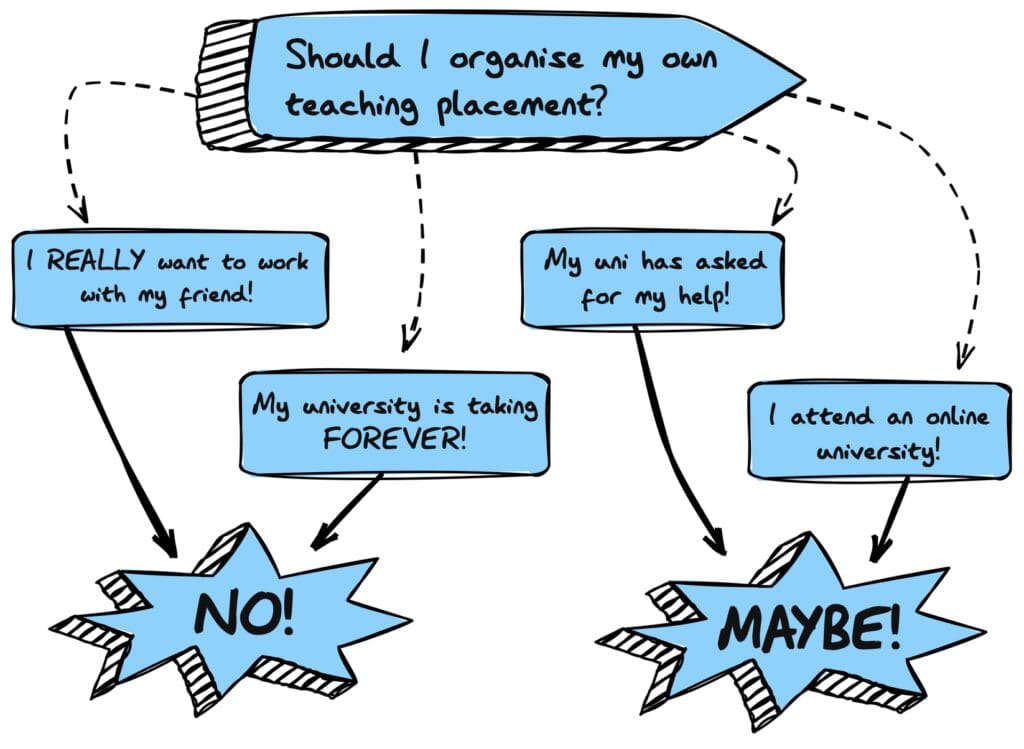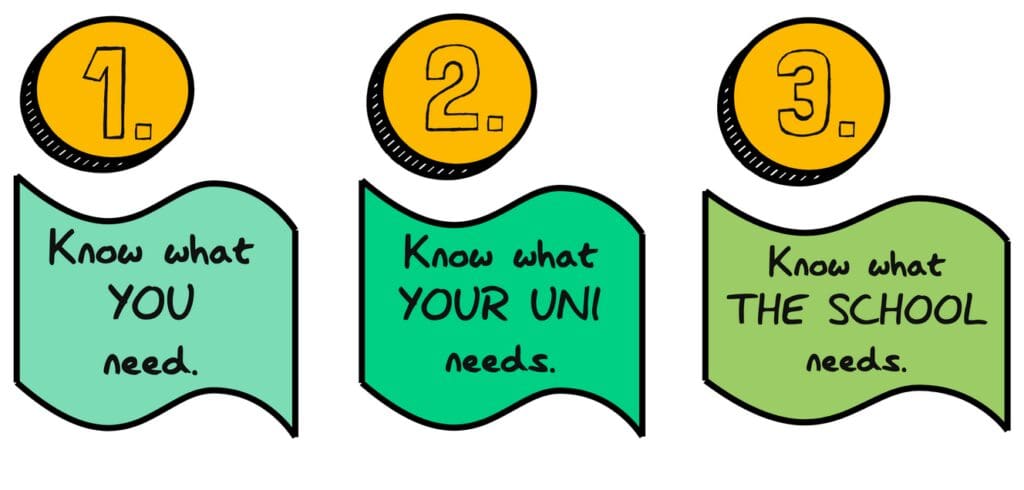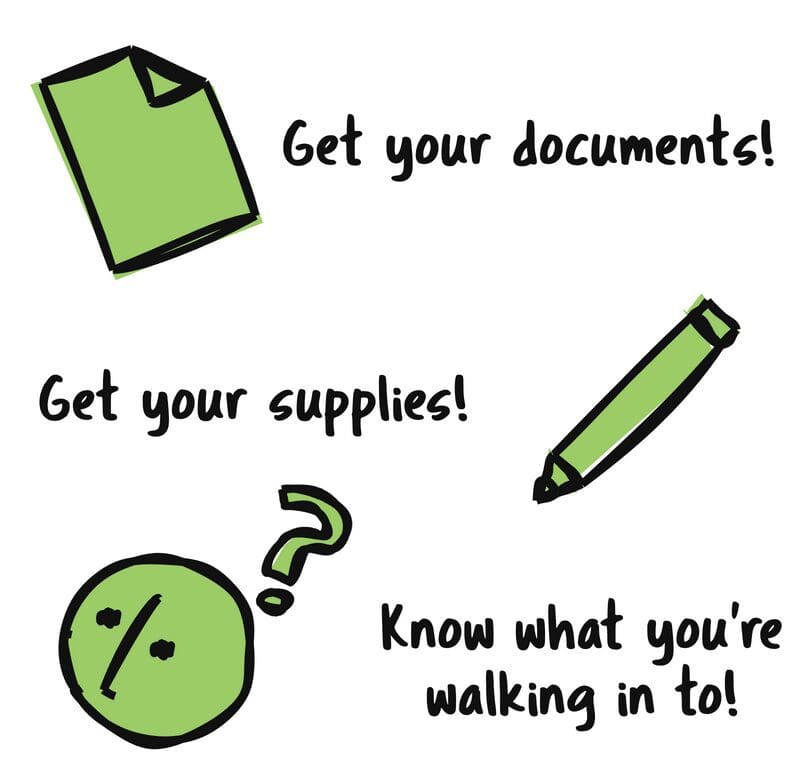Are you a teacher who is looking for a placement opportunity? Every teacher goes through placement; it’s an important part of any teacher education program and a fantastic learning opportunity for any pre-service teacher.

In most situations, you will not need to organise your own teaching placement. In fact, you should not be organising your own teaching placement unless you are in a particular situation and you’ve got the go-ahead from your university or college.
If you do find yourself in the position where you need to organise your own teaching placement it can be difficult, but it is definitely doable. Here are a few tips to help you through the process.
1. Why teachers would organise their own teaching placement
2. How to go about organising a teaching placement
3. What to do once your placement is organised
4. The benefits of organising your own teaching placement
Why teachers would organise their own teaching placement
While not every teacher should organise their own teaching placement, there are many reasons why you might need to. The key reason why is if you’re studying remotely and are not in the same town or even the same state as your university.

Remote and online universities are becoming more and more popular, and these universities are unlikely to have strong connections with your local schools as they would if they were also local. Many universities that offer degrees in education have strong connections with their local schools specifically so that they can support their students in getting the right teaching placement.
Another reason why you might need to organise your own teaching placement is if your university has tried and tried and cannot find you a placement. If this is the case, they are unlikely to get you to organise the placement entirely on your own, but they may ask for your input. For example, they may ask if you have any family members or friends in any of the local schools who can use their connections to find you a teaching placement.
How to go about organising a teaching placement
There are a few steps that you will need to take in order to successfully organise your own teaching placement. The first step is to identify your goals and objectives for the placement. You will have personal goals for your placement and things that you want to achieve, but your university will as well, so it’s important to keep them in the loop.

It is important to consider what year level, subjects, and even geographical area you are interested in before you go and try to find a teaching placement to help you learn more about teaching in these specific areas. In addition, your university will have requirements about how long your placement needs to be, and they may have other criteria such as doing a certain number of weeks at a particular year level or in a rural school.
Once you know what you want to get out of the experience, you can start to look for schools that offer the type of placement that you are interested in. It is important to remember that not all schools offer teaching placements, so you may need to ask around until you can find one that fits your needs.
It is important to ask lots of questions about the placement process if you find a school that is interested in taking you. Some schools may need you to fill in some additional paperwork, or even get a special type of clearance or do some training before you begin. The final step is, of course, to submit your application and wait for a decision from the school.
What to do once your placement is organised
Once your teaching placement is organised, there are a few things that you will need to do in order to prepare for the experience. First, you will need to obtain the necessary documents and make sure that you have copies of all of them for the school to keep on file. One of the things that the school should have told you when you inquired is whether you will need verified copies of these documents or not, and this will require some planning if this is required.

Next, you will need to make sure that you have all of the necessary supplies for your placement. You may need to bring your own device such as a laptop, and you will certainly need some whiteboard markers and other stationery. You may also want to prepare some learning activities before your placement; while you won’t be able to prepare too much until you meet your mentor teacher and your students, it is always handy to have some quick, fun, open-ended tasks in your back pocket in case you need them.
Finally, it is important to familiarise yourself with the school’s policies and procedures. You may be able to find a lot of these on the school’s website, but it is worth calling up and asking if there are any documents that you need to familiarise yourself with before you start. It is likely that the school will require you to do an induction on your first day as well, which will go through a lot of the policies and procedures in detail so that you can ask questions.
The benefits of organising your own teaching placement
While not every teacher should be organising their own teaching placement, there are some benefits if you are put into this situation.
Teachers who organise their own placements often have a better understanding of the process and are better prepared for the experience. You will have already made contact with the school, and may already be a familiar name before you start. Being able to reach out to schools is a skill that will definitely serve you well when you’ve finished your degree and are starting to look for work.
Teachers who organise their own placements are also often able to find positions in schools and classes that are best suited for their needs and interests. You might be able to target your placement towards a specific area of interest such as Special Education, or you might make a really meaningful connection with the school that is just down the road from you! Either way, getting your name into a school that you would like to work at in the future will help you make connections and can help you get that job.
It may seem difficult, but you can do it!
Organising your own teaching placement can be a daunting task, but it is one that you may need to do. If you are in this position, just make sure that you keep your university in the loop so that they can make sure that all of their requirements will be met. There is nothing worse than finishing your final teaching placement to find that it isn’t actually worth any credit towards your degree!
How have you found the process of organising a teaching placement? Do you think that it’s easier or harder to organise it yourself compared to letting your uni handle it? Let us know in the comments below!
Did you find this article helpful? Share it with your friends!
